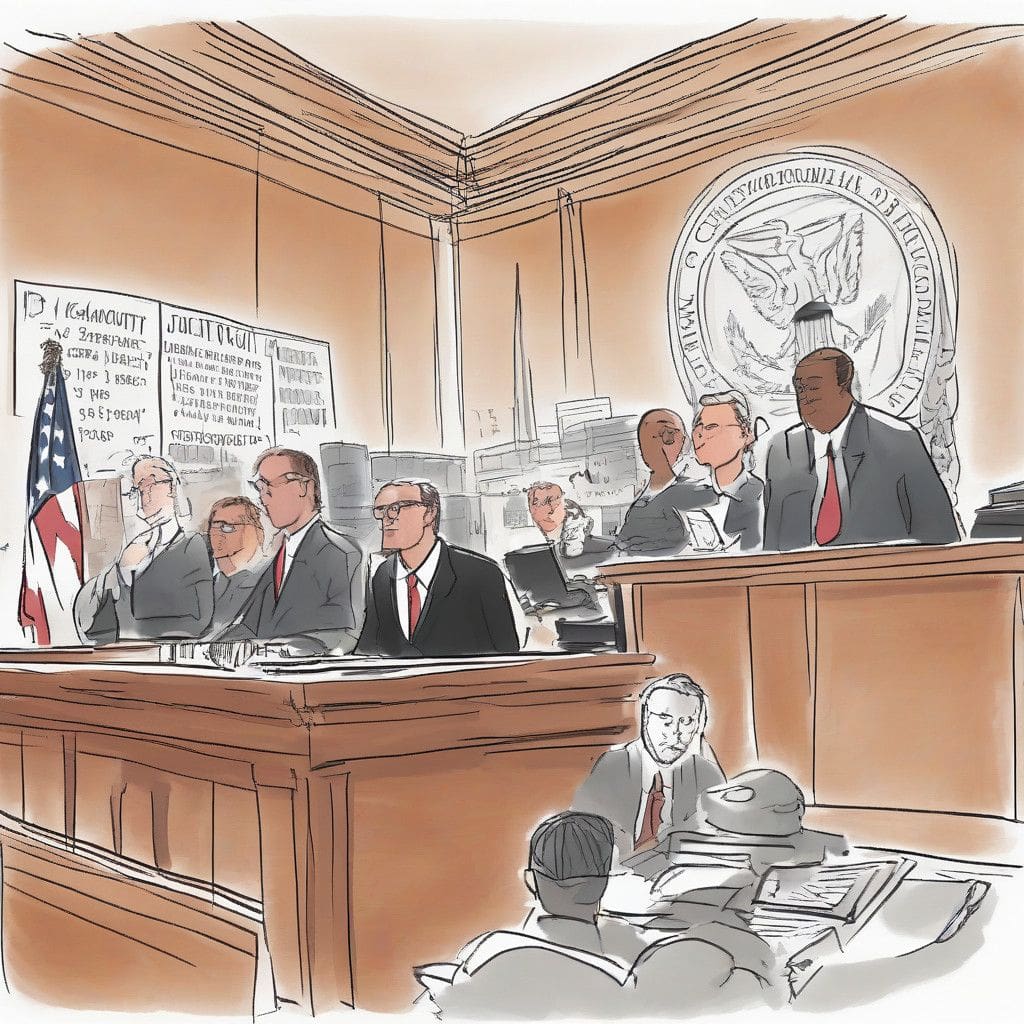Caroline Ellison, former CEO of Alameda Research, has been sentenced to two years in prison due to her involvement in one of the largest financial scandals in US history—the collapse of the cryptocurrency exchange FTX. This unprecedented case has drawn significant attention not only within the financial world but also in broader discussions surrounding corporate governance and ethical conduct in the burgeoning crypto sector.
Ellison’s legal troubles began when she pleaded guilty to multiple fraud charges connected to the FTX debacle. Her cooperation with federal authorities was instrumental in the conviction of FTX’s founder, Sam Bankman-Fried, who received a staggering 25-year prison sentence for his role in the fraudulent activities that led to the exchange’s downfall. The prosecution highlighted how billions in customer funds were misused, resulting in immense losses for investors.
During the sentencing, US District Judge Lewis A. Kaplan acknowledged Ellison’s cooperation yet deemed that her engagement in the mismanagement of funds warranted prison time. In light of her cooperation, Ellison’s legal team sought leniency, requesting time served and supervised release. Nonetheless, the judge imposed a two-year sentence and ordered her to forfeit approximately $11 billion. This forfeiture underscores the breadth of financial damage inflicted on customers and investors during the FTX collapse.
Legal experts have opined that the court’s decision reflects a growing trend in punishing corporate executives who play a role in large-scale financial misconduct. The judiciary is increasingly scrutinizing the behaviors of individuals within corporations while establishing that illegal activities cannot be brushed aside by mere cooperation; accountability remains paramount.
The case has sparked broad conversations about the complexities and risks inherent in the crypto world. The rise of cryptocurrency has been meteoric, attracting both legitimate interest and fraudulent actors. FTX, once seen as a front-runner in the sector, became a cautionary tale of how rapid growth and lack of regulatory oversight can lead to devastating consequences.
Ellison’s cooperation with prosecutors was significant in unearthing the depth of the fraudulent activities at FTX. Her testimony exposed systemic failures within the company and highlighted how executives, operating with minimal oversight, can mismanage funds without adequate checks and balances. This pattern of governance failure raises red flags for regulatory bodies considering how to oversee the rapidly expanding crypto market.
Moreover, the implications of this case extend beyond just the parties involved. Investors are now acutely aware of the risks associated with crypto investments, prompting many to call for greater transparency and stronger regulatory measures. As cryptocurrency becomes more mainstream, the fallout from the FTX scandal is catalyzing discussions about how to foster a safer investment environment.
Stakeholders in the financial sector, from regulators to investors and corporate executives, must draw lessons from the FTX collapse to promote more responsible practices within the cryptocurrency landscape. Implementing robust governance frameworks—ideal education around cryptocurrency risks and ethical behavior—could help in mitigating future financial disasters.
While Ellison’s case serves as a stark reminder of the necessary accountability in corporate conduct, it also illustrates the complexities involved in regulating a rapidly evolving industry. As more cases emerge, the ongoing adjustments to legal frameworks and regulatory practices will be essential in ensuring that such high-profile fraud attempts do not recur.
In conclusion, Caroline Ellison’s sentencing reflects a pivotal moment for accountability in the cryptocurrency sector. This case serves as a warning to those who may consider ethical boundaries as negotiable in pursuit of profit. Transparent governance and ethical conduct will be crucial as the industry moves forward.












